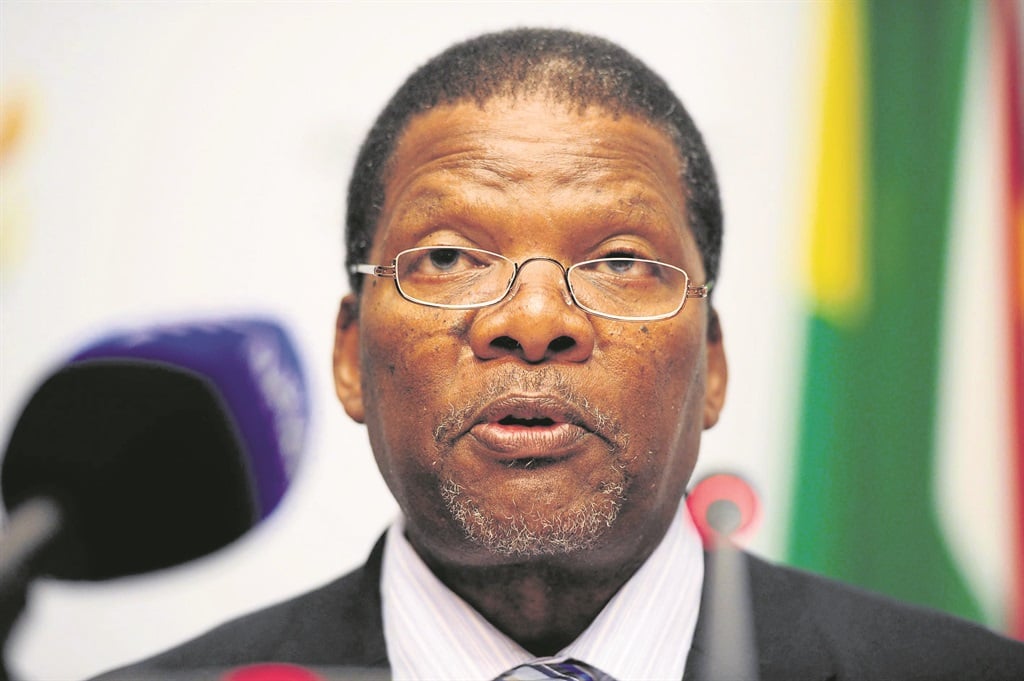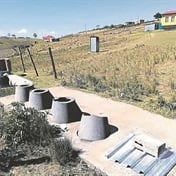
President Jacob Zuma’s commitment to land reform to drive radical economic transformation was music to the ears of Rural Development and Land Reform minister Gugile Nkwinti.
Nkwinti, who has held the vexed land portfolio in Zuma’s Cabinet since 2009, said he was buoyed by Zuma’s state of the nation address speech on Thursday night.
The renewed focus was a direct translation of ANC policy as spelled out in the party’s January 8 statement.
“This is excellent. These are decisions of the follow-up ANC lekgotla. These are not decisions of the president. This is how it should work, and I am happy with the president’s speech,” said Nkwinti in an interview outside Parliament after Zuma had delivered his address.
The minister acknowledged that the urgent issues around land and economic transformation may have been put on the backburner at the start of democracy in 1994.
“Remember, though, that the focus of the first 10 years was on reconciliation, and building a democratic Constitution.”
Now, more than 22 years down the line, “the urgency of the land question has increased in tempo, which makes sense,” he said.
Nkwinti warned that if the country did not speed up land transformation “we put reconciliation and South Africa at risk”.
He did not feel threatened by the fact that new political parties such as the Economic Freedom Fighters had heightened pressure and a sense of urgency in implementing radical economic transformation.
“People are telling us now to get on with it, and that includes the EFF. This is fine. Any constitutional revolution requires some disruption to ensure impetus; it is part of the process.”
When it came to specific mechanisms being established to drive land reform, Nkwinti cautioned that expropriation was not a catch-all answer. It was also a potentially fraught process.
“It is only used when there is intransigence, but at the same time it could lock the process in court for lengthy periods. South Africans are very litigious.”
Other mechanisms had great benefit, such as the office of the Valuer-General which regulates the valuation of properties that had been identified for land reform. In its first year of office, the Valuer-General had saved more than R50 million.
In terms of identifying true patterns of land ownership shifts in post-apartheid South Africa, Nkwinti said it had been difficult to conduct a comprehensive audit because of the removal of race-based policies.
“Home affairs deracialised identity, which made it difficult to assess.”
The so-called 50-50 programme, officially known as the Strengthening of Relatives Rights Programme which Zuma said would be prioritised, was a pet project of Nkwinti’s.
“This is a typical Nelson Mandela model which can reconcile the seemingly irreconcilable – the relationship between farmer and worker.”
Nkwinti said it was a “radical” concept that was already seeing positive results with big companies and farm owners buying into the idea.
In his address, Zuma said that in the 50-50 programme, farm workers join into a legal entity with the farm owner to form a new co-owned company. To date 13 proposals have been approved benefiting 921 farm dweller households at a value of R631 million.
“We applaud farmers and farm workers for this innovation,” said Zuma.
Zuma said it would be impossible to achieve true reconciliation until the land question was resolved.
Only eight million hectares of arable land have been transferred to black people, which is only 9.8% of the 82 million hectares of arable land in South Africa.
There has also been a 19% decline in households involved in agriculture from 2.9 million in 2011 to 2.3 million households in 2016.
Some initiatives have faced delays, he said. For instance, the Expropriation Act had been referred back to Parliament for reconsideration on the basis that the bill may not pass constitutional master.
Zuma urged Parliament to “move with speed in meeting the requirements so that the law can be finalised to effect transformation”.
The reopening of land claims is also still on hold because the Restitution of Land Rights Amendment Act was declared invalid by the Constitutional Court. Parliament had not met the standards set in the Constitution.
Zuma appealed to land claimants to accept land instead of financial compensation.
“Over 90% of claims are currently settled through financial compensation which does not help the process at all. It perpetuates dispossession. It also undermines economic empowerment.”
Zuma also committed to implement a commercialisation support programme for 450 black smallholder farmers.
» See City Press on Sunday for a full interview with Gugile Nkwinti by political writer Andisiwe Makinana.




 Publications
Publications
 Partners
Partners








